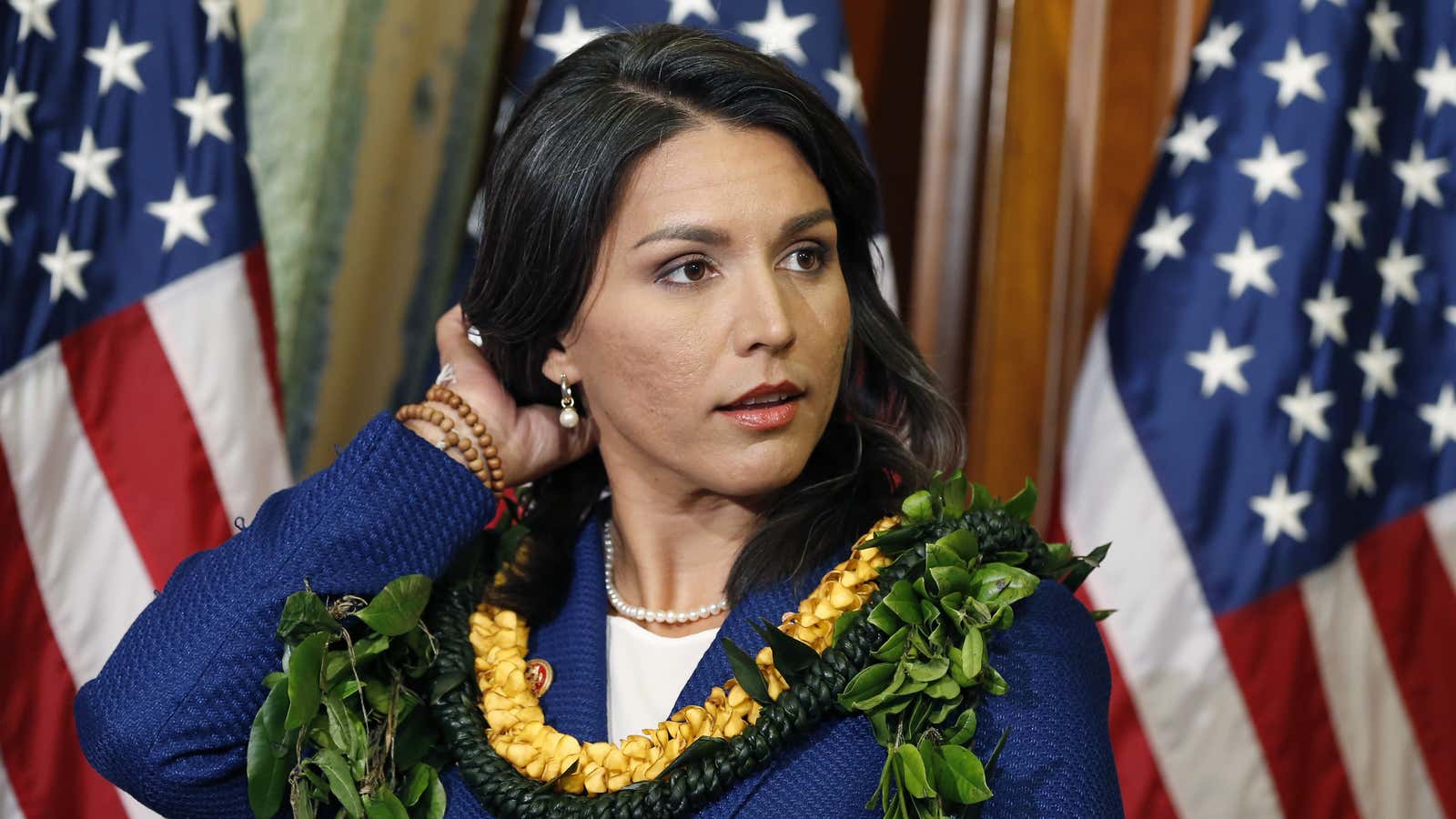A rising star within the Democratic ranks, Rep. Tulsi Gabbard of Hawaii, cut herself off from the party’s establishment by resigning from her post as vice-chairman of the Democratic National Committee and endorsing Bernie Sanders for president.
Her position with the DNC required her to stay neutral in the primaries, but she said that “the stakes are too high.” She announced her decision on Sunday on NBC’s “Meet the Press,” and made a video where she explained her reasoning.
Gabbard, an Iraq war veteran, said she knows the cost of war firsthand. “I know how important it is that our commander-in-chief has the sound judgment required to know when to use America’s military power—and when not to use that power.”
Gabbard, a Democrat popular with right-wing media, has criticized president Barack Obama and his judgement on matters of war, distancing herself from the party line. Last February, she told Fox News that Obama was wrong in his view that the rise of ISIL was caused by poverty and lack of education, rather than Islam as a religion. He is, she said, “completely missing the point of this radical Islamic ideology that’s fueling these people.”
In November, she took a very unpopular position, saying that America should stop its efforts to remove Syrian president Bashar al Assad from power, calling them “illegal” and “counter-productive,” and introducing legislation to block war against Assad.
In her endorsement for Sanders, she said America needs a president “who will not waste precious lives and money on interventionist wars of regime change,” presumably referring to the war in Iraq and strategy in Libya, led by then-secretary of state Hillary Clinton, both of which she has criticized in the past. Although generally hawkish in her foreign policy views, she is opting for the Vermont senator as a candidate who “will usher in a new era of peace and prosperity.”
Gabbard’s rising profile goes in tandem with her rebellion against her party’s leadership. In October, she was involved in a highly-publicized spat with DNC chairman Debbie Wasserman Schultz, saying that she was disinvited from a primary debate after she called for more of them, a decision that was criticized by many insiders, and pointed to discontent among party ranks.




